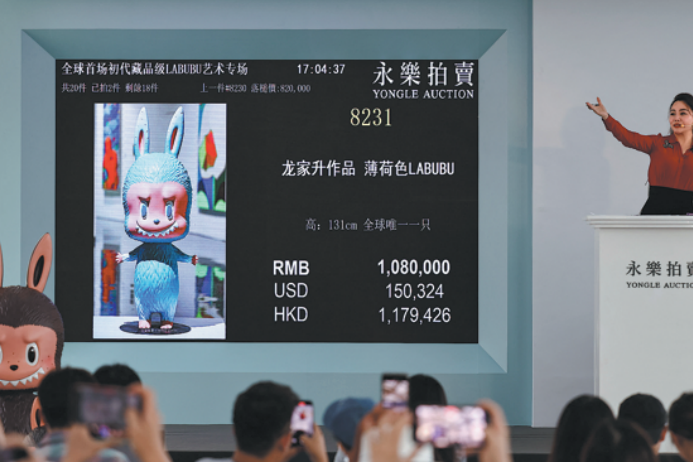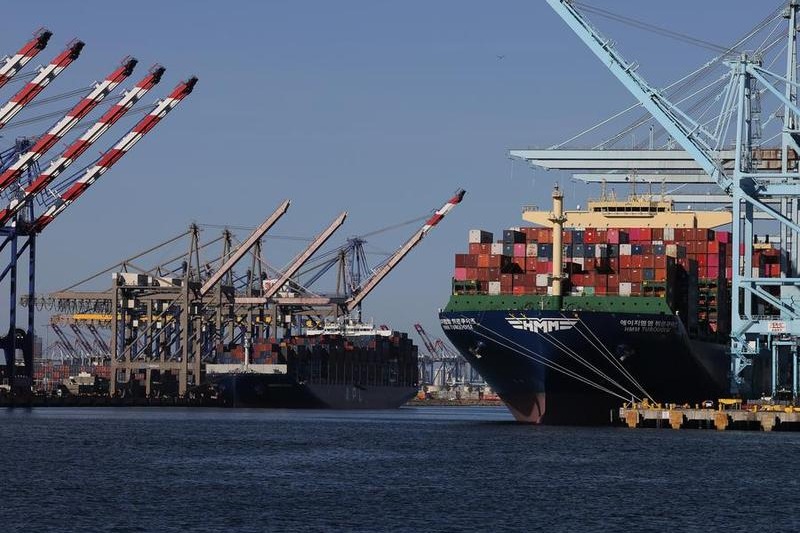Calls grow for more inclusive global governance


Following World War II, the world entered an era of profound change. The global order underwent a dramatic shift as the United States and the Soviet Union emerged as rival superpowers, while many nations worked to recover from the devastation of the war. Against this backdrop, the need for economic collaboration, diplomatic engagement, and collective security became increasingly evident. The world's advanced economies, particularly in the West, sought to ensure that the post-war order would foster peace and prevent another global conflict.
The advanced industrial economies recognized the importance of coming together to stabilize markets, promote economic growth, and coordinate monetary policies to prevent further global disruptions. The G7 emerged from this collective vision to address issues affecting the world's leading industrial economies. Originally formed as a group of six major industrialized nations - the United States, Canada, France, Germany, Italy, and the United Kingdom - it later expanded in 1975 with the addition of Japan. This expansion was a response to global economic challenges, particularly the 1973 oil crisis, which was accompanied by economic instability, soaring oil prices, and inflation that deeply affected the global economy.
Over time, the group's focus expanded beyond purely economic issues. As geopolitical tensions evolved, the G7's agenda grew to encompass a broader range of global challenges. The G7 has served as a platform where the leaders of these nations can discuss key issues that affect the global economy, security, and the future of international governance. It became especially significant in times of crisis - whether addressing the collapse of financial markets or global issues such as climate change, terrorism, and pandemics.
However, in the current context, the G7 does not involve some of the major global powers and, therefore, fails to represent the full range of global needs. As the global landscape has shifted, the influence of the G7 has been challenged by the rise of new economic powerhouses and geopolitical players. The growing influence of emerging economies particularly China, India, Brazil, and others from the Global South have reshaped the global order.
While the G7 continues to serve as a powerful forum for advanced economies, it faces increasing criticism from the Global South for its failure to fully understand and adapt to the evolving global needs and shifting geopolitical and economic realities. What was once a vital forum for addressing global economic challenges has increasingly become out of step with the world's current dynamics.
The Global South, which represents a significant portion of the world's population and economic output, is often excluded from the G7's discussions. This exclusion undermines the group's ability to address issues that affect the entire global community. The G7's reluctance to evolve in response to these shifts has led to its portrayal as a club for wealthy, industrialized nations, rather than a truly representative body capable of tackling the pressing global challenges of today.
The group's failure to include voices from the developing world means that many global issues such as inequality, climate change, and international security are often addressed in a way that reflects the interests of the few, rather than the many. Decisions made by the G7 are frequently seen as benefiting only a select group of countries. For instance, trade agreements often reflect the interests of G7 members while leaving developing nations with less favourable terms. Similarly, interventions in conflict zones or sanctions on certain countries are sometimes applied selectively, with geopolitical considerations influencing the consistency and fairness of these actions.
The G7's narrow membership leaves out the perspectives of the developing world, whose voices are crucial in shaping policies that address systemic inequalities. Moreover, there is a deep sense of double standards in how the G7 approaches international governance. This creates a perception that the G7, in many ways, acts in self-interest and applies a set of rules that is inconsistent or unfair. By sidelining these perspectives, decisions often favour the economic and political interests of wealthier nations, exacerbating global disparities.
This type of governance where the interests of the few dominate the decisions made for the many only deepens global divisions and undermines efforts to build a fairer, more just international system. The G7's failure to recognize its limitations in representing the world's diverse needs is a major reason why its decisions increasingly face criticism. Without a more inclusive approach that integrates the perspectives of developing countries and ensures fairness and equity, the G7 risks becoming irrelevant as the world moves toward more inclusive, multipolar frameworks for addressing global challenges.
In response, many advocate for new international platforms, such as the G20, which offer more inclusive, representative spaces where the voices of emerging and developing economies can be heard and considered in critical decisions on issues like climate change, security, and trade. These broader platforms hold the potential to reshape global governance in a way that reflects the interconnected, diverse world we live in and helps ensure that solutions are equitable and address the needs of all nations not just a select few.
China, with its rapid economic growth, and India, with its large population and expanding economy, have become central actors in global trade, finance, and climate change efforts. Similarly, regional powers like Brazil, South Africa, and others from the Global South are playing increasingly important roles in addressing issues such as global inequality, environmental sustainability, and international security.
The Global South, comprising developing countries in Africa, Latin America, and Asia, represents a significant portion of the world's population and faces unique challenges that require tailored solutions. Yet, for decades, their voices have been sidelined in forums like the G7, where the interests of advanced economies have dominated discussions.
The BRICS platform serves as a counterbalance to the G7, where decisions are often made with the interests of only a few nations in mind. BRICS offers a more inclusive approach, with a focus on shared development, fairer trade practices, and addressing the needs of a broader swath of the global population. As the Global South continues to grow in both political and economic influence, initiatives like BRICS highlight the desire for a more representative and equitable global governance structure that is not solely shaped by the major powers but by a collective of nations with diverse interests and priorities.
The author is director of BRISL, an independent and pioneering Sri Lanka-based organization that specializes in the Belt and Road Initiative. The views don't necessarily reflect those of China Daily.
If you have a specific expertise, or would like to share your thought about our stories, then send us your writings at opinion@chinadaily.com.cn, and comment@chinadaily.com.cn.

































